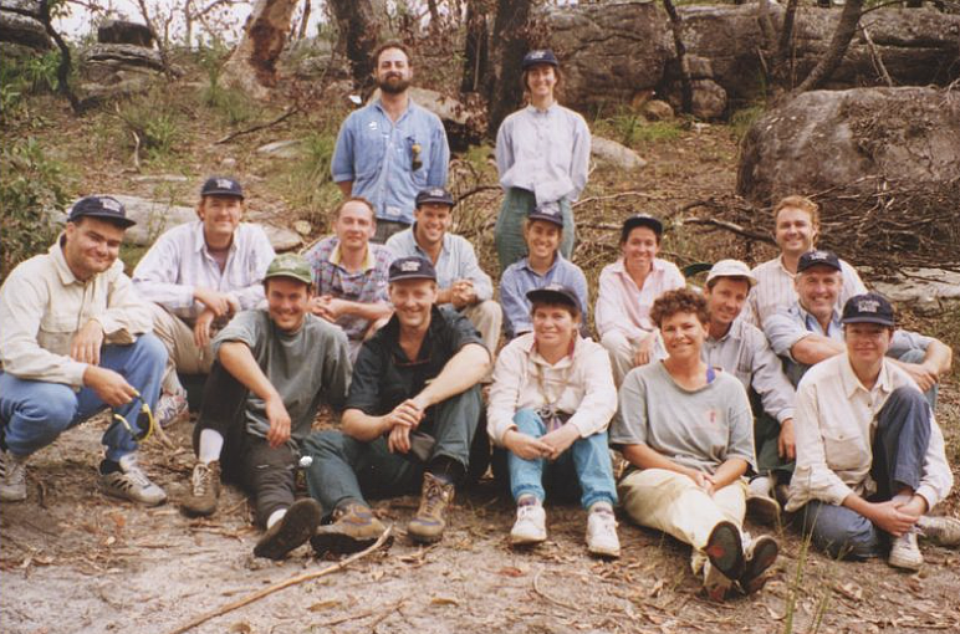
ICDA and BoardPro partnership unlocks digital governance tools for not-for-profits nationwide
Posted on 10 Dec 2025
Adele Stowe-Lindner, Executive Director, Community Directors The Institute of Community Directors…
Posted on 06 Aug 2024
By Matthew Schulz, journalist, Institute of Community Directors Australia

A poll of Australian not-for-profit leaders shows they have a strong appetite for better understanding their biggest stakeholders.

The snap poll follows the release of the groundbreaking Community Compass study, which shows a split in public attitudes to the community sector.
The attitudinal study by leading researcher Rebecca Huntley mapped major differences in perceptions of not-for-profits and charities, based on in-depth questioning of more than 3000 people.

Her strategic policy research firm 89 Degrees East – which also produced the Climate Compass and Gender Compass reports – found Australians could be divided into six attitudinal segments based on their views of the community sector, summarised as:
Speaking at the launch, Dr Huntley said the report had been jointly commissioned by Our Community and the Community Council for Australia (CCA), the sector peak body, “to gain an in-depth understanding of how different groups of Australians might not only engage with the community sector, but their attitudes to the sector, and what impact they think the sector has on Australia”.
Nearly 500 community leaders – representing advocates, fundraisers, philanthropists and service providers – signed up for the online launch last month. When Our Community asked them how they would employ the study:
Notably, none said it wouldn’t change the way they worked.
“Yes, it's about attitudes. But it is also about the level of engagement, the actual behaviour."

Dr Huntley said the study, unlike her previous work, provided greater understanding of how people interacted with the sector.
“Yes, it's about attitudes. But it is also about the level of engagement, the actual behaviour,” Dr Huntley said.
“What all of this segmentation really does present is quite a complex and nuanced picture about the diversity of public relationships with the community sector, both in terms of behaviour and in terms of attitudes.”
She said her researchers “really sweated” in choosing the right kinds of names for each groups, with the terms indicating both the level of engagement and the prevailing attitude.
The study held “heartening insights” but also highlighted “red flags” for sector leaders, including confusion about what actually constituted a community organisation, with many thinking local councils and schools were part of the community sector.
Dr Huntley said the challenge for the sector was to be able to work with different attitudes and levels of engagement in different ways.
Organisations needed to interrogate the study to extract actions and strategies, she said, and questions would include: “What are the values? What are the concerns? What are the barriers? How do we think about these audiences? And where is the potential to engage, potential to give, potential to care? How do we hold their attention?”
She said the alternative to inaction was a splintering of the community through a loss of social cohesion, and a slow decline in support for the sector.
The threat was that “We lose our sense of ourselves as a strong, fair, connected, collaborative society, a little bit every day, and suddenly all at once.”
The countering action was to maintain and build that community “a little bit every time” and with a “laser-like focus on who we talk to, how do we talk to them and what do we need to understand about them?”
At its heart, the Community Compass was a tool to help organisations to “reinvigorate our value to all of those audiences as much as we possibly can,” she said.
One of the ways the sector could do this, she said, was to work with the different segments to attempt to ensure the “Indifferent Uninvolved” did not grow, and that the “Enthusiastic Engaged” segment attracted younger and younger people.
Ageing was a critical part of the changing equation, Dr Huntley said, and she suggested community organisations would be well served by highlighting their relevance to the younger age bracket.
“A very small percentage increase can mean a lot … and I know with the kinds of people doing the kind of work listening today we can get there.”

Settlement Services Australia (SSI) CEO Violet Roumeliotis – whose organisation provides services including refugee resettlement – said in a LinkedIn post soon after the Community Compass launch that the study offered “a crucial snapshot of attitudes towards our sector and it’s a picture that demands our attention.”
SSI had already begun shifting its approach as a result of increasing social polarisation, she said.
Among the “Indifferent Uninvolved” grouping, “the motivators of morality and shared humanity don’t resonate with them”, and as a result, “it's easy for our sweeping, idealistic statements to lose their appeal,” Ms Roumeliotis said
“Our value as a sector needs to be proved based on the impact delivered, not promises made.”

Posted on 10 Dec 2025
Adele Stowe-Lindner, Executive Director, Community Directors The Institute of Community Directors…

Posted on 10 Dec 2025
The Australia Institute has called on the federal government to force Australian businesses to be…

Posted on 10 Dec 2025
Economic empowerment is essential to enabling recovery, restoring agency and preventing future…
Posted on 10 Dec 2025
A long-time advocate for rough sleepers in northern New South Wales has been named her state’s…

Posted on 10 Dec 2025
What a year 2025 has been, particularly at a national level where the Parliament and politics as we…

Posted on 10 Dec 2025
Anyone working in an organisation knows it: meetings follow one after another at a frantic pace. On…

Posted on 10 Dec 2025
As a qualified yoga instructor who learned the practice in her hometown of Mumbai, Ruhee Meghani…

Posted on 10 Dec 2025
Community Directors trainer Jon Staley knows from first-hand experience the cost of ignoring…

Posted on 10 Dec 2025
Stressed, overwhelmed, exhausted… if you’re on a not-for-profit board and these words sound…

Posted on 10 Dec 2025
The Institute of Community Directors Australia trains over 22,000 people each year, which gives us…

Posted on 09 Dec 2025
The late Sir Vincent Fairfax is remembered as a business leader, a chairman of AMP, and an active…

Posted on 08 Dec 2025
A pioneering welfare effort that helps solo mums into self-employment, a First Nations-led impact…